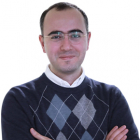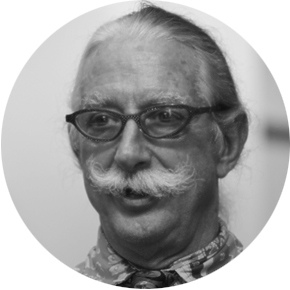Founder of hospital clownery, doctor and clown Patch Adams armed with laughter and committed to his Love Revolution mission spent almost 10 days in Armenia. Along with his group of clowns he visited orphanages and children’s hospitals in Yerevan, Gyumri, Vanadzor and Dilijan, delivered lectures at Yerevan Mkhitar Heratsi State Medical University and American University of Armenia (AUA).
In his interview to Mediamax, Patch Adams summed up his tour in Armenia, told about his mission in here and shared his impressions.
- You first learned about Armenia from post stamps. How did you picture the Armenia depicted on the stamps and how did it prove to be in reality?
- It’s true, I used to collect stamps. My father was an officer in the United States Army and we did not have much money, so these post stamps were the window through which we were darting a glance at the entire world and getting acquainted with it. The history of a country, its art, nature and name are imprinted on those stamps, and with a map you can easily find it. I was collecting stamps when I was 9 or 10. Today I am 70. So you cannot compare it – it is the same as to hear about a kiss and compare it with a real one. Those are two different things. The stamps taught me where Armenia is located. Later on, I acquired books on Armenian Genocide. I knew there are Armenians and there is also William Saroyan, who you call Armenian, and who I call American.
- It was your first time in Armenia. What impressions did Armenia leave on you? What do you think of Armenian people?
- Armenia is a country of beautiful and loving people. Unlike many tourists, I have hugged hundreds of Armenians. They all received me with love and the elderly women were laughing with me loudly. I could see kind and caring hearts at Armenian children’s homes.
- How did you get to know Ruben Vardanyan and how did he suggest visiting Armenia?
- 13 years ago, in Russia, I got to know a girl called Maria. She was providing care for children in orphanages. She was very poor when she started it, but she was strong enough to establish her own organization, which in order to continue its existence, sells at an auction the works and wares created by children. Last November Ruben Vardanyan attended one of those auctions. He is not a timid person and his type is very dear to me. He approached me and said: “Patch, you have to come to Armenia.” I knew who he was and I said: “Take 25 clowns.” And so he did.
Out of our 150 trips, only 10 have been covered by a single person. It’s easy with Ruben; he wants to share. I have never met such a rich person who would be this willing to share without setting any preconditions. I looked him in the eye and understood that we would come to Armenia. His team had become a “grand mother” for us.
- What do children in Armenian orphanages and hospitals mostly need?
- Certain medical institutions had better financing than the rest. But financing does not necessarily mean good staff. There were places where I could see maternal love and care, and there were places that lacked it. I wish the staff consisted of more women or men truly loving and caring for children.
School age is the age at which children should learn to love. Cancer killing the child is not the worst thing; the worst are the aggressive boys running in the orphanage. The life of these children is terrible. They are homeless children living in orphanages, deprived of their mothers’ love. The hardest and most difficult thing is this. How can you make a child-loving person out of such a rough and tough kid? It’s very hard to do in orphanages, and it’s something that occurs in all countries. Being raised by loving parents guarantees your being a loving person too, and being raised in a troublesome and abusive family is who you will become in then end. And after all, being deprived of care deeply affects all children, no matter they are rich or poor.
Every single child needs a loving family. A country where there is a homeless child is a country in the system of which something “has gone haywire.” Unfortunately, such a country is hard to find. I hope when they grow up they will follow a different direction. We all need a home where we will be loved. The lack of a loving home is what makes them violent.
I don’t want men to beat women. I am pretty sure the majority of perfect families lie on the shoulders of women. It’s the miracle of women – even if the father’s not good enough, they still manage to transform the family into a home full of love.
- Is your mission in Armenia accomplished or should we expect some continuation?
- This visit differed from many of our trips in that it was a gift. In general, clowns themselves cover their expenses. I will be surprised if Ruben does not find us again and invite to Armenia. He has much love in him and deep inside his soul, he strives for a Love Revolution. I am sure he will consider inviting us again. I know he loved the idea that Armenia should become the first country that will teach to love. I am sure this idea is “tinkling” in his mind.
Life is a mystery, and you never know to which side it will veer. A slight idea of founding a clownery movement would sound unbelievable to me back in 1971 when I started building my hospital. If someone told me I would make at least one such tour, I would say “no, I must build the hospital”. It’s already the 45th year I have been into this and everything that happened was far from what I had imagined. Building that hospital is still on my task list.
- What are you taking with you from Armenia?
- A dress for my granddaughter, five books and many memories. We had photographers and cameraman during our visit and during my next trip to any destination, I will show the work we did with patients and children in Armenia just like I did in Armenia when showing movies recounting our trips to other countries. The stories I take with me are diverse.
Every month I send 400-600 letters to people living in various corners of the world. The letters I will send next month will include stories from this trip as well. Just like the yarns in the carpet, so the countries in the world are all attached to one other.
Marie Taryan talked to Patch Adams
Photo: Mariam Loretsyan





















Comments
Dear visitors, You can place your opinion on the material using your Facebook account. Please, be polite and follow our simple rules: you are not allowed to make off - topic comments, place advertisements, use abusive and filthy language. The editorial staff reserves the right to moderate and delete comments in case of breach of the rules.